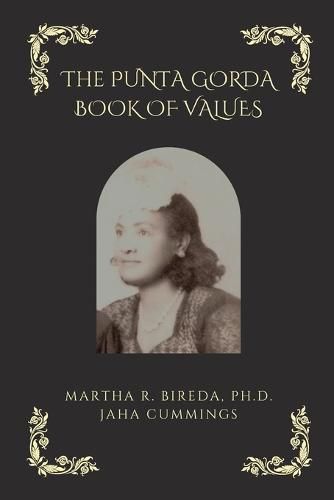Readings Newsletter
Become a Readings Member to make your shopping experience even easier.
Sign in or sign up for free!
You’re not far away from qualifying for FREE standard shipping within Australia
You’ve qualified for FREE standard shipping within Australia
The cart is loading…






This title is printed to order. This book may have been self-published. If so, we cannot guarantee the quality of the content. In the main most books will have gone through the editing process however some may not. We therefore suggest that you be aware of this before ordering this book. If in doubt check either the author or publisher’s details as we are unable to accept any returns unless they are faulty. Please contact us if you have any questions.
Punta Gorda has been described as "the little town that unity built". It has been characterized as having a "unique sociology" due to its biracial settlement and development. Built by its founders on the principles of mutual respect and shared prosperity, Punta Gorda's history serves as a model for our country in demonstrating the power of societal unity.
Punta Gorda was founded by both black and white pioneers despite Florida's Jim Crow laws. Together they created a society where all members of their community could thrive. This book is the story of the values that sustained Punta Gorda's early African American pioneers.
The traditional values held by the African American pioneers that settled Punta Gorda enabled the community to survive and thrive. These values that were passed generation to generation from 1885 to the late 1960's, were learned by one of the authors herself as a girl growing up in Punta Gorda, Florida, and passed down to her son, the co-author of this book.
Using old photographs and newspaper articles, the 8 core values learned by the children of Punta Gorda are shared with young readers aged 8 to 13. The values taught in Punta Gorda were typical of those held by the descendants of enslaved people who established communities after the turn of the century. This book provides youth with an opportunity to seek and utilize primary sources to gain a window into the past, while helping them develop their critical thinking and interpersonal skills.
$9.00 standard shipping within Australia
FREE standard shipping within Australia for orders over $100.00
Express & International shipping calculated at checkout
This title is printed to order. This book may have been self-published. If so, we cannot guarantee the quality of the content. In the main most books will have gone through the editing process however some may not. We therefore suggest that you be aware of this before ordering this book. If in doubt check either the author or publisher’s details as we are unable to accept any returns unless they are faulty. Please contact us if you have any questions.
Punta Gorda has been described as "the little town that unity built". It has been characterized as having a "unique sociology" due to its biracial settlement and development. Built by its founders on the principles of mutual respect and shared prosperity, Punta Gorda's history serves as a model for our country in demonstrating the power of societal unity.
Punta Gorda was founded by both black and white pioneers despite Florida's Jim Crow laws. Together they created a society where all members of their community could thrive. This book is the story of the values that sustained Punta Gorda's early African American pioneers.
The traditional values held by the African American pioneers that settled Punta Gorda enabled the community to survive and thrive. These values that were passed generation to generation from 1885 to the late 1960's, were learned by one of the authors herself as a girl growing up in Punta Gorda, Florida, and passed down to her son, the co-author of this book.
Using old photographs and newspaper articles, the 8 core values learned by the children of Punta Gorda are shared with young readers aged 8 to 13. The values taught in Punta Gorda were typical of those held by the descendants of enslaved people who established communities after the turn of the century. This book provides youth with an opportunity to seek and utilize primary sources to gain a window into the past, while helping them develop their critical thinking and interpersonal skills.